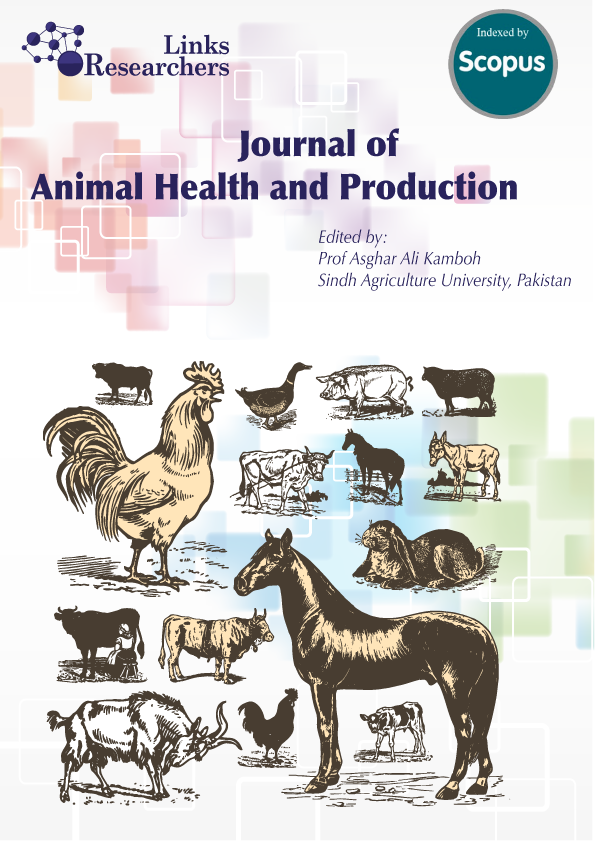Effect of Supplementation of Mealworm Scales (Tenebrio molitor) on Growth Performance, Carcass Traits and Histomorphology of Japanese Quails
Effect of Supplementation of Mealworm Scales (Tenebrio molitor) on Growth Performance, Carcass Traits and Histomorphology of Japanese Quails
Sarzamin Khan1, Abdul Jabbar Tanweer2, Rafiullah1, Ibrahimullah1, Ghulam Abbas3*, Jabbar Khan4, Muhammad Saeed Imran5, Asghar Ali Kamboh6
ABSTRACT
Increased demand for animal protein and high cost as well as shortage of conventional feed ingredients has driven the dire need to search for alternative protein and energy sources to be incorporated in poultry feed. Insects may be one of the alternative feed source which can be used as a good quality, low-cost and sustainable ingredients of poultry feed. Therefore, the present experiment was designed to explore the effect of dietary inclusion of mealworm (Tenebrio molitor) scales in diet on production performance, carcass quality and histomorphology of Coturnix japonica (Japanese quails). For this, 120 Japanese quail chicks (day-old) were taken and randomly divided into 4 groups (G1, G2, G3 and G4) with three replicates and ten birds were assigned to each replicate. Group 1 was control (C) without adding mealworm scales in feed (basal diet). Group 2, 3 and 4 were fed ration with 1, 2 and 3 g/kg mealworm scales respectively incorporated in the basal feed. Feed intake, FCR (feed conversion ratio) and body weight gain were recorded on weekly basis. The use of mealworm scales at level of 3g/kg in feed significantly (P<0.05) decreased feed intake, increased weight gain and improved feed conversion rate (FCR) as compared to other groups. A significant (P<0.05) increase in crypt depth and villus height of birds was recorded fed diet supplemented with mealworm scales (3g/kg). The breast percent and carcass weight recorded in birds fed 3g/kg mealworm scales in diet was significantly (P<0.05) higher than other groups. In conclusion, data of the current experiment indicated that mealworm (Tenebrio molitor) scales at the level of 3g/kg in quail’s diet has important effects on performance, carcass traits and histomorphology of ileum.
Keywords | Mealworm scales; Japanese quail; Performance; Gut histomorphology
To share on other social networks, click on any share button. What are these?






